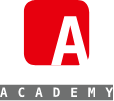Objectives: The objective of this prospective comparative cohort study was to establish the effectiveness and safety of Erbium:YAG (Er:YAG) laser treatment for genitourinary syndrome of menopause and to compare it with an established topical estriol treatment.
Methods: Fifty patients with genitourinary syndrome of menopause were divided into two groups. The estriol group received a treatment of 0.5mg estriol ovules for 8 weeks and the laser group was first treated for 2 weeks with 0.5mg estriol ovules 3 times per week to hydrate the mucosa and then received three sessions with 2,940nm Er:YAG laser in non-ablative mode. Biopsies were taken before and at 1, 3, 6, and 12 months post-treatment.
Maturation index, maturation value and pH where recorded up to 12-months post-treatment, while the VAS
analysis of symptoms was recorded up to 18 months posttreatment.
Results: Statistically significant (P<0.05), reduction of all assessed symptoms was observed in the laser group at all follow-ups up to 18 months post-treatment. Significant improvement in maturation value and a decrease of pH in the laser group was detected up to 12 months after treatment. The improvement in all endpoints was more pronounced and longer lasting in the laser group.
Histological examination showed changes in the tropism of the vaginal mucosa and also angiogenesis, congestion, and restructuring of the lamina propria in the laser group. Side effects were minimal and of transient nature in both groups, affecting 4% of patients in the laser group and 12% of patients in the estriol group.
Conclusions: Our results show that Er:YAG laser treatment successfully relieves symptoms of genitourinary
syndrome of menopause and that the results are more pronounced and longer lasting compared to topical estriol treatment.
Genitourinary Syndrome of Menopause


